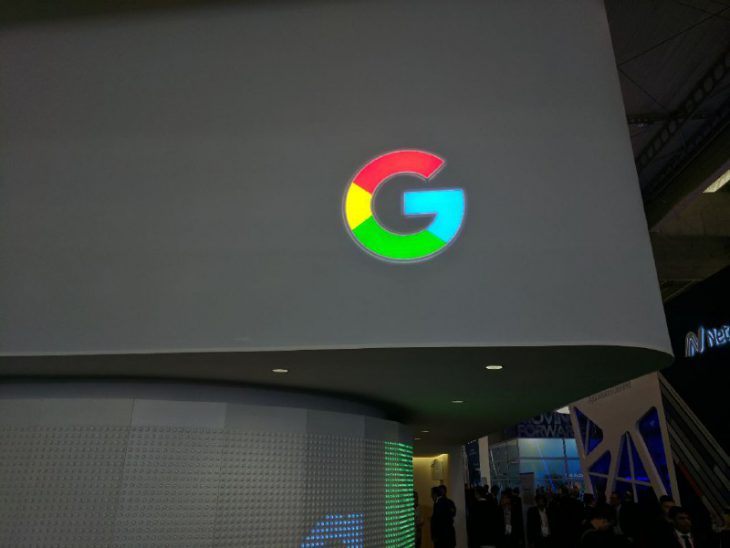
At this year’s MWC in Barcelona, we had the opportunity to sit down with Google’s Senior VP of Hardware, Rick Osterloh at a media roundtable. That’s right, the same series of roundtables that led to the apparent misquoting, and thus misreporting, of the apparent death of Google’s Chrome Laptop line, which has now strongly been rebuked.
Moving on from that saga, in our time with Rick the group discussed may things, of note was the future of Google’s hardware efforts, Google’s role in releasing affordable Android Devices and the long-running question of whether Google should be manufacturing their own devices in-house.
Google Hardware, the future
Yes, Google will be making more hardware. Yes, they will release some of it this year. No, Rick Osterloh never actually promised a specific device.
It’s very clear that Google is serious about hardware, and has restructured the majority of their hardware related offerings to fall under the new single team led by Rick Osterloh. It’s also clear that they are hard at work on their next products. What will that hardware be? Phones, tablets, laptops, convertibles… the list goes on, we just don’t know, but that doesn’t mean we can’t guess.
It would be naive to think that Google won’t release a Pixel 2, or similarly named device this year, as Rick said in the interview the industry has fallen into an “annual cadence” around hardware releases, so we should “expect” Google to do the same. He even went as far as to say we should expect a hardware announcement from Google later this year, he never actually said this would be a Pixel, but my money is on it including a Pixel.
Google will release a Pixel 2 (or whatever it’s called) this year, in other news, water is wet.
Rick spoke about the benefits of the in-house hardware efforts, providing for the marriage of software and hardware to create “the best representation of Google’s products and services”. As far as the Pixel line goes, it was clear that this was to remain a premium brand, this was evident in many of the answers, and at this stage, any hope of a Pixel branded low-cost device are all but dashed, at least for now.
Other products like the Google Home were intended to showcase other Google services, in this case, Google Assistant. Imagine the launch of Assistant without the Google Home, it would have been half of a service, and I think Google is learning that they can no longer rely on other hardware OEMs to make products that meet Google’s requirements for either hardware, security or product integration, if they want it done right (aka their way) it has to be done in-house.
One issue Rick discussed was the significant market demand for the Pixel, admitting that in many markets, or channels, Google and their manufacturing partners were struggling to keep up the supply of new devices to meet market demands. It seems that the Pixel was just far more popular than even Google had planned for and it is taking a while to get to scale on the device and actually get it into users hands.
Moving forward Google hopes to better match their prearranged manufacturing capacity with this level of demand. Here’s the question, will the Pixel line fall into a tick-tock sales pattern like some devices do with people only renewing on mass every 2nd year? Has the Pixel been enough to create brand loyalty after just one year? Will the “stars align” again as they did with the Note 7 and the lack of headphone jack on the iPhone?
As a new hardware company, I think it’s only fair that we give Google a few years to sort themselves out, sure they aren’t new to Android but they are new to being solely in control of their hardware. Most of the other brands have been in the hardware game since before the advent of the smartphone and have had the benefit of growing into it. Even then these long-standing hardware companies routinely miss estimates or have long supply chain hold ups. In the end, hardware is hard.
When asked about Google’s intention to “make” their own hardware components, e.g. SOC’s the response was clear “Google will do whatever is needed to drive innovation”. Rick pointed to the development of the TensorFlow processing units developed in-house at Google for AI as an example of this. Long story short Google probably is working with multiple partners in both influencing 3rd party parts as well as investing R&D into more customised components simultaneously, as Rick put it “Google can (financially) and will make bold and audacious bets”.
I’m not expecting the “G1” processor to show up in their next handset but I do think as a major player in the Android ecosystem and now Android Hardware that Google will be both influencing the design and future of major 3rd party component suppliers like Qualcomm SOC and Sony Image sensors to name only to, as well as experimenting with their own commentary when that makes sense too.
Google and affordable hardware
Several members of the round-table posed questions about Google’s plans around more affordable Pixel Android devices. While I would not go as far as to say Rick confirmed that would never happen, I certainly won’t be holding my breath to get such a device anytime soon.
Google seems entirely focused on the ‘premium’ brand experience right now with Rick stating that Google is “pressing a premium product strategy”, and while that’s great from one respect premium is just a euphemism for expensive, at least in the mobile industry. Will Google one day make affordable handsets? Maybe but I really didn’t get a sense that this was happening soon.
There have been reports of a cheaper Google device, and these reports have further clarified that any such device wouldn’t fall under the Pixel brand so all hope is not lost. That said Rick was razor-focused on the Premium end regardless of the fact that everyone in that room was more interested in the mid-tier. That said Google just “didn’t have anything to share at that time” (you get sick of hearing that!!).
I further pushed the topic as to Google’s moral imperative, as the caretaker and driving force behind Android, to ensure that regardless of economic means everyone had access to safe and secure Android Hardware. The question was skillfully redirected, and I never got to follow-up.
From Rick’s answer is seems apparent that the official line on this is that Google is “working with partners” to provide such alternatives. I further asked about the Android One program and if that could be expanded into more markets allowing OEMs to offset the cost of monthly security updates, again the answer was non-committal in any direction.
What’s the long and the short of this? Firstly we won’t be seeing an affordable Pixel from Google anytime soon, but that doesn’t close the door to another in-house brand focused at affordable devices being released. However, I didn’t get the sense this was as important to their hardware efforts, I sincerely hope I’m wrong.
Secondly, Android One may be expanded to more markets, it is already in Japan, Honestly, I think this may, in fact, be the only viable outcome for the lower cost segment, the question is if Google will allow this and perhaps further cut into more traditional partners handset sales. Rick did comment that Android One remains a focus for Google, let’s hope that’s an expanding focus…
Lastly, we could see some more mid-range devices such as the Moto G5 or G5 Plus get more regular updates, but Android is supposed to be about choice, and a choice of one isn’t much. As far as I can see the real battle and the real story of Android for the next few years will not be played out in the flagship space but rather the affordable end of the market.
In a world where all of the “top of the line” devices have all the good features, great cameras and hopefully ongoing security updates the choice really comes own to taste, that 1 spec ou can’t live without or brand loyalty. However, at the other end of the market where you may have to choose between good software, or an ok camera or semi-regular security updates there is a lot of space for someone to come in and release a device that really drives value for users.
I hope the story of Android in 2017 and 2018 is the rise of the affordable, secure and feature-complete mobile devices. You never know this may even drive down the ever-increasing process of the flagship phones!
Will Google bring manufacturing in-house?
The has been a lot of commentary, conjecture and speculation concerning if Google should bring their hardware manufacturing efforts in-house. It’s not hard to find someone to say that perhaps Google should buy the struggling HTC for their manufacturing capabilities. I have to admit I never thought this approach made sense so while we had the ear of the one man most qualified to address the question I asked him.
In his response, Rick outlined that the majority of consumer tech hardware is in fact made as a partnership between the companies designing and engineering the product and those who specialise in their mass construction. Sure there are exceptions to this but it’s apparently not the majority of devices.
Google’s hardware division is still scaling up, yes they launched several new products last year (Pixel, Pixel XL, Daydream View, Google Home, Google Wi-Fi, Chromecast Ultra) but many of these hardware offerings are restricted to limited markets, and others such as the Pixel are constantly sold out due to the demand for the devices.
This does not look like a Hardware group that is ready to take on the additional challenge of the manufacturing of their own hardware. And Rick seemed to agree, in his response, he indicated that Google has always partnered to make their hardware. The Nexus program was a co-branded partnership, the Pixels are well known to be built by HTC and all of Google’s other hardware are all made by other partners.
In Rick’s words, Google will continue to design and develop their hardware and work with partners to manufacture the devices.
Google simply isn’t looking to move into the hardware manufacturing business, and that’s probably a good thing. Perhaps in a few years when Google has a proven track record of hardware products and a stable cadence of releases along with a known market demand for those products this may change, but in the short-term to mid-term this doesn’t seem likely or wise.
Conclusion
Overall Rick conveyed a sense of commitment to Hardware from Google, this doesn’t feel like a ‘project’ something that could disappear at any time. Their Hardware efforts feel like Google has drawn a line in the sand and said, from this time forward we will own the premium hardware experience for our users, no longer will they be beholden on others to enact their vision for their services.
This is an exciting thing, for too long have we had to suffer through someone else’s interpretation of how Google’s products and service should be embodied, and with more and more of their services manifesting in a physical form the time is right for Google to carve out their own space amongst the consumer electronics elite.
We got very little indication of what may be next from Google’s hardware efforts outside the typical annual refresh cycle that the industry has settled into. Has Google shown off all of their current hardware or will we get even more G-branded goodies come October 2017?
There can be little doubt with the Pixel and Google Home that Google can make great hardware, now it’s time to see if they can make it commercially viable as well. For my perspective, I’d love to see Google help bring the cost of hardware down, but somehow I think Google is also in hardware to diversify their revenue stream and higher hardware profits would be more appealing to them than serving social justice.







Thanks for the article! It is not clear to me what ” hardware manufacturing business” means in 2017. Lets use the elephant in the room as our test case. Do you consider Apple in the “hardware manufacturing business”? To me it makes no sense for Google to do anything beyond what they are doing today with HTC and other partners for their hardware. Maybe use Flextronics or Foxconn in the future as more experience than HTC doing this role. My other HUGE takeaway was the doing their own hardware because of security. This has flown under the radar somewhat. But… Read more »
Google only makes things to harvest data. Every other function is just the honey to trap the flies.
Where have you been? I posted many hours ago. Usually you troll me and respond within minutes!
Jack Smith is one of the flies.
Flies?
Interesting reading, just some feedback on articles like this, if you’re interviewing someone it would be good to have more direct quotes and less editorialising.
We looked at whether this should be two articles, or whether we should simply combine the info we got with editorial, and a decision was made to go with the latter. Why? First, commentary was entirely necessary; not all of the information needed to understand Rick’s comments was available in the info he gave. We had to include quite a bit to make it all make sense. Secondly, it conveyed a better story. Stripping out the editorial would make for pretty dull reading in this case, and we crafted something which told a story, rather than just picking out a… Read more »